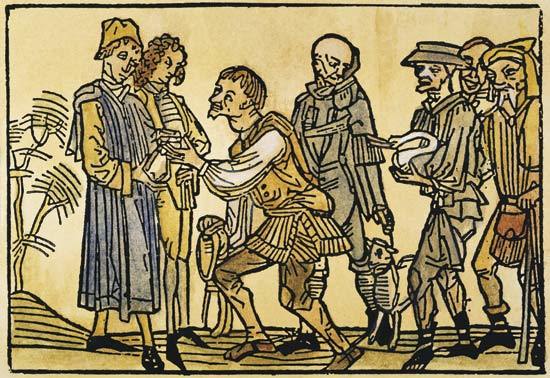Established in 1976, seven years after Maine became a Home Rule State.

Hegodis, CC BY-SA 4.0 <https://creativecommons.org/licenses/by-sa/4.0>, via Wikimedia Commons
My last post ended with the discovery that there is a statutory requirement to teach not only the Maine Constitution in our elementary and secondary public educational system but also Maine Native American studies and Maine African American studies. and the history of genocide.
It’s Sub-Chapter One of Title 20-A: EDUCATION Part 3: ELEMENTARY AND SECONDARY EDUCATION Chapter 207-A: INSTRUCTION
In the past, in public comments, I stated that the Maine Constitution is not taught anywhere in our public school system and no one contradicted me so I wrote to a school board member. Without mentioning the law, I asked for information about Maine studies, including the Maine Constitution, how it is being taught in our local school system and who are the instructors. The answer I received was that they would look into it.
The board talks about the state laws that require “intervention” programs. Why does the school board not have equal concerns and knowledge about state laws requiring Maine Studies?
The laws about students with disabilities are subject to federal law and go on for pages, defining every detail of the process, including funding.
Not so for Maine State law §4706. Instruction in American history, African American studies, Maine studies, Maine Native American history and the history of genocide
There is only one policy related to this law, referenced by a link with a text but the referenced statute makes no mention of any of the above or the Maine Constitution.
This is the referenced law stated in §4706
2. Maine studies. Maine history, including the Constitution of Maine, Maine geography and environment and the natural, industrial and economic resources of Maine and Maine’s cultural and ethnic heritage, must be taught. A required component of Maine studies is Maine Native American studies. Maine Native American studies and Maine African American studies must be included in the review of content standards and performance indicators of the learning results conducted in accordance with section 6209, subsection 4. Maine Native American studies must address the following topics:
A. Maine tribal governments and political systems and their relationship with local, state, national and international governments; [PL 2003, c. 510, Pt. B, §5 (RPR).]
B. Maine Native American cultural systems and the experience of Maine tribal people throughout history; [PL 2003, c. 510, Pt. B, §5 (RPR).]
C. Maine Native American territories; and [PL 2003, c. 510, Pt. B, §5 (RPR).]
D. Maine Native American economic systems. [PL 2003, c. 510, Pt. B, §5 (RPR).]
[PL 2021, c. 247, §1 (AMD); PL 2021, c. 247, §3 (AFF).]
3. History of genocide. The history of genocide, including the Holocaust, must be included in the review of content standards and performance indicators of the system of learning results conducted in accordance with section 6209, subsection 4.
but there is no mention of the above in the text of section 6209, subsection 4.
4. Review cycle. The commissioner shall conduct a review of the content standards and performance indicators by content area on a 5-year cycle beginning in the 2015–2016 school year. The review of the content standards and performance indicators for the content area of social studies, including student achievement of proficiency in personal finance, must be included in the commissioner’s review during the 2015–2016 school year. Any changes that are recommended must be approved through the same process used for the establishment of the system of learning results. Beginning in the 2016–2017 school year, the commissioner shall review and make recommendations for objective measures that may be used to substantiate school certifications of postsecondary readiness. The review of the content standards and performance indicators for the content area of health, physical education and wellness, including instruction on affirmative consent, communication and decision making regarding sexual activity and the effects of alcoholic drinks, stimulants and narcotics on the ability to give affirmative consent, communicate and make appropriate decisions, must be included in the commissioner’s review beginning in the 2019‑2020 school year.
[PL 2019, c. 196, §2 (AMD).]
On the surface, programs for children with disabilities, ages birth-6 sound reasonable and constructive, but the term “intervention” has a dystopian association, suggestive of the “conditioning” in Aldous Huxley’s Brave New World. The institutionalization of “career training” in the elementary and secondary public school system also fits in with Huixley’s vision of dystopia, where the state controls the individual’s destiny from birth.
Conditioning, or a process by which an individual is prepared for his or her role in society, takes place within the society of Aldous Huxley’s dystopian novel Brave New World. We saw that many of these instances of conditioning are caste-based, being designed to teach basic behavior suitable for an entire caste. Others are meant to reinforce societal norms, such as those taught through hypnopaedic conditioning, where emotional memories are implanted in the brains of the young while they sleep. Finally, some are individualized for a specific task, such as rocket mechanics, through individualized conditioning, where individuals are conditioned to specific life roles or jobs. source
Pursuant to individualized conditioning, where individuals are conditioned to specific life roles or jobs, §6212. Innovative, autonomous public schools, funded by Title 30-A, §5654: Conditional gifts can achieve the goal, allowing corporations and individuals with money to control our public school system.
§5654. Conditional gifts
2. Perpetually comply with conditions. When the donor or the donor’s representative has completed the donor’s part of the agreement concerning the execution of a conditional gift, the municipality shall perpetually comply with, and may raise money to carry into effect, the conditions upon which the agreement was made.
§6212. Innovative, autonomous public schools
A school administrative unit may establish and operate an innovative, autonomous public school. The school board may approve an instruction design, a school calendar, a staff selection process and a method for assessing professional development to be used in an innovative, autonomous public school that exceed or differ from, but do not conflict with, applicable statutory and regulatory requirements. The school board shall propose, receive and allocate funding for an innovative, autonomous public school as part of the budget process for that school administrative unit in accordance with this Title. A school board may request waivers as necessary to implement an instructional model and associated curriculum that meet the standards of this section for innovation and autonomy. [PL 2009, c. 616, §1 (NEW).]
My first introduction to the locale caste system was when I approached Wendy Wolf as the head of the Boothbay and Boothbay Harbor Joint Economic Development Council with a concept for a Museum and I was told “to go get help from your own peer group (caste)! We can’t do anything to help Individual businesses” Shortly thereafter I was advised by the local resource council not to approach the JECD until I had attended their meetings in silence for a year to show my respect” This is the cultural conditioning reserved for the bottom half of the economy as there are distinct cultural conditioning for each caste.
Nicole Wallace on MSNBC has a way of putting the extreme cultural divide. She calls it Earth One and Earth Two. On Earth One the right of the people to petition their government is granted by the First Amendment of the US Constitution. On Earth Two that right is granted by a Maine statute. On Earth One the Maine statute does not grant the right of the people to petition their government, it mandates that the school board respond appropriately when the conditions are met. My encounter with Ms. Wolf was my first direct encounter with Earth-Two, but I had been vaguely aware of it before then. There was never a basis for a rapport between Andersen Design and Town leadership.
The evolving cast system is evident by comparing the psychological conditioning developed in academia for use to promote innovation behavior among the workforce within corporate workplaces, with the way similar character traits are regarded by resource providers to the lower half of the economy where economic development is discouraged. My presentation was not even acknowledged to exist by her Highness.
The caste system is evident in the absence of programs supporting economic development support for grassroots entrepreneurialism. Local resource councils may use the slogan “helping others to help themselves’ but there is no funding for that! Grassroots entrepreneurialism is unsupported despite it being a major movement within the workforce. Economic development for those in the lower half of the economy is solely conceived of as training programs for corporate workforces such as is planned for our public educational system. The character traits desired in corporate culture are called psychological capital and therein lies the difference between the social treatment in one sector and the other for capital stimulates economic growth and Maines (financial) wealth redistribution system distributes wealth in the form of capital favoring the upper half of the economy, where the highly subsidized corporate culture seeks to develop psychological capital within its workforce with the “conditioning” as developed in the academic world called psychological ownership and psycap.
Psycapitalization: The Art Storefronts Model
A return to the roots, Productivity as the true source of wealth.
mackenziana.medium.com
The four components of psychological capital
Although we commonly use the terms “hope,” “efficacy,” “resilience,” and “optimism” in day-to-day conversation, they have specific meanings when it comes to the science underlying psychological capital. To build psychological capital, you can’t pick just one of the four components to work on. The components are interdependent and synergistic. Combined, the four components amount to a whole that is greater than the sum of their parts.
Hope: Hope is the ability to see a potential path forward to a better future. It involves having goals and the willpower to achieve them. To realize hope, the path does not need to be easy or quick, but it must be plausible and achievable. Importantly, hope also includes the ability to generate new or alternate pathways to overcome obstacles while pursuing goals, or what is called “way power.”
Efficacy: In psychological science, “self-efficacy” refers to a sense of confidence in one’s ability, upon putting in the necessary effort, to successfully follow a path forward to accomplish goals.
Resilience: Psychological resilience is one’s ability to return to baseline, or even come back stronger, after experiencing emotionally challenging life events, including stressful work situations. It is the ability to bounce back from adversity and cope with challenges, especially through mental, emotional, and behavioral flexibility.
Optimism: This refers to a way of thinking about life that tends to attribute positive events to you or your team’s own skills and abilities, while attributing negative events to temporary, external circumstances. Optimism also refers to a general tendency to expect good things to happen in the future. Importantly, optimism is not the unrealistic belief or expectation that everything will always go smoothly. Instead, it is an expectation that the future will be generally positive with a grounded understanding that life is full of challenges.
Entitlements for the lower end of the economy are configured as basic living provisions and do not support economic growth. In the modern-day “caste” psycap character traits sought after within corporate culture are discouraged and portrayed as arrogance in the community resources culture, as I have experienced in my encounters with that system. My family business, Andersen Design, gives me a unique perspective because Andersen Design taught the skills of art and science of making ceramics on the job since 1952, and is a recognized designer-craftsman in the research and development industry, in other words, the same attributes as the school boards emphasize but in the local and state leadership culture (Earth-Two), Andersen Design, as a small free enterprise organization is on the “Do not retain” list, just another part of Maine’s history to be demolished or repealed and replaced with corporate feudalism advanced by the centrally managed economy of Maine.
The Intervention” programs as talked about by the school board refer to the care of children aged birth-6 years who are deemed by the system to be disabled. School officials are instructed to look for children, anywhere, who can be determined to be disabled by the system composed of Earth-Two people. The children declared disabled can become wards of the state, extrapolating into a future dystopian world, the state can have other reasons for taking those children. Perhaps they are gifted and the State wants to repurpose the children for its own agenda. The State decides who is disabled. It makes its own rules and does not care about people as evidenced in state discrimination against individualism.
The state intervention laws go on for pages. Sometimes the word “may” is used, indicating an optional choice. In other instances, the language goes beyond the optional including laws calling for surrogate parents.
These laws can evolve into situations where just about any sort of non-conformity can be deemed by the officials to be a disability.
- Under federal law, public schools must look for, find, and evaluate kids who need special education.
- This is called Child Find, and it covers kids from birth through age 21.
- It applies to all kids, including those who are homeschooled or in private schools, plus kids who are migrants or without homes. source
The omission of the constitutional and cultural study requirements in its associated law, make it easy for our school boards to ignore that law. These requirements are stated only once but it is in SubChapter One of the law governing elementary and secondary school instruction so school boards and school officials should be familiar with that law. If the law is not honored it is because the school leadership culture doesn’t care and no one has put up millions of dollars to make them care. Will a good samaritan donor bearing conditional gifts manifest to develop a special autonomous school based on §4706. Instruction in American history, African American studies, Maine studies, Maine Native American history and the history of genocide?
Perhaps others outside the “public” school system (for sale to private donors) could develop awareness for our Constitution. It could be an engaging subject for videographers who could conduct constitutional debates over current policy.
We have the Maine Space Corporation, enacted in 2022 . The subject of debate is
How can §13201. Maine Space Corporation established be reconciled with Article IV Part Third Section 14 of the Maine Constitution?
Maine Constitution Article IV, Part Third
Section 14. Corporations, formed under general laws. Corporations shall be formed under general laws, and shall not be created by special Acts of the Legislature, except for municipal purposes, and in cases where the objects of the corporation cannot otherwise be attained; and, however formed, they shall forever be subject to the general laws of the State.
§13201. Maine Space Corporation established
The Maine Space Corporation is established as a body corporate and politic to carry out the purposes of this chapter. The corporation shall leverage the State’s geographic, rocketry, manufacturing and higher education assets and capabilities to establish the State as a national and international industry destination and an authority in launching small launch vehicles and small satellites into polar orbit by:
Two teams can debate each other, one arguing that the Maine Space Corporation is constitutional and the other that it is not. The team arguing that it is constitutional can interview the sponsors and the Legislators who voted for the act for supportive arguments. The team arguing against the constitutionality of the Maine Space Corporation can use the measure of the law, which is “Can the Maine Space Corporation be done another way?” It’s Unlikely that they will get an interview with Elon Musk but the space industry is a crowded field. There are others to interview. This would make great local TV, but it isn’t going to happen in our public educational system because the Maine Space Corporation is going to use our public educational system as its workforce training facility, indoctrinating our youth into its industrial army from the youngest age possible.
You might have noticed if you clicked on the link to the Maine Constitution that for a brief moment a blank parchment-colored page opens up before it switches to a page with a blue background, consistent with the background color of Maine statutory law. That is because I used the link address that was operative for many years that displayed a stand-alone Maine Constitution on a parchment-colored background.
That address is https://www.maine.gov/legis/const/#a4
But the Constitution was recently relocated to embedment in Maine statutory Law so that the old address now forwards to https://legislature.maine.gov/ros/LawsOfMaine/#Const
The parchment background swapped with blue takes away the Constitution’s visual distinction from statutory law, consistent with the beliefs of the Earth-Two people, that the people’s right to petition their government is granted to them by Maine Statutory Law. Those are the people in charge of the Maine public educational system. People holding such responsibility should know better.

Buy a really cool gift for your best friend and support this newsletter at the same time!
